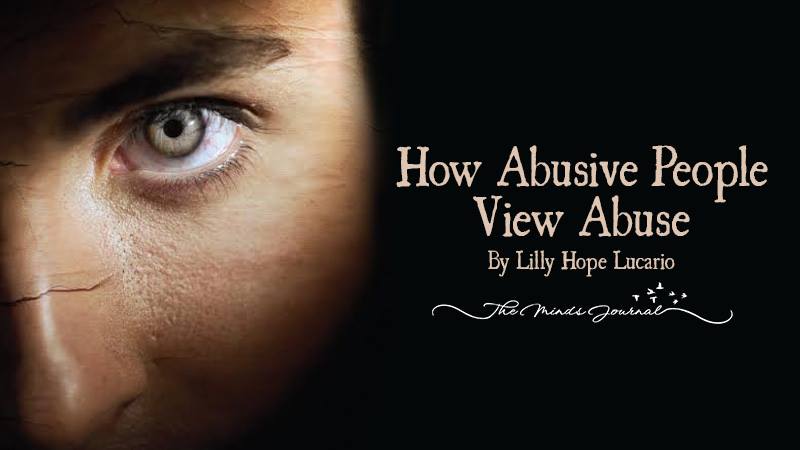How abusive people view abuse
How Abusive People View Abuse – Apaths, Egocentrics, Narcissists, Sociopaths, Psychopaths:
1. Apaths –
I can’t be bothered to be concerned about abuse. Who cares. Boring. I know people who say they are being abused. I ignore it. Not my problem, is it? And I like that person they said was an abuser.

2. Egocentrics –
Abuse doesn’t affect me, so why should I care? They should deal with their own problems behind closed doors and not bother others. Now can we get back to my problems?
3. Narcissists –
I think it’s fine to use people, treat people badly, then lie, deny, project if you need to. That’s life. Everyone does it. Don’t criticize me, or I will have a tantrum and deny it all. And if all else fails, I’ll act the victim, whilst starting a vindictive smear campaign.
4. Sociopaths –
I do plan to exploit and hurting others because I think it’s funny to watch people get upset. It’s not my problem they are weak. And I’ll do it again. It’s fun and I enjoy it. You don’t agree, I don’t care. And if pushed into a corner, I too may act the victim.
5. Psychopaths –
I hurt others because they are there to be used and abused and I feel nothing about how they feel. I will do what I want to get what I want, abuse who I want, hurt them as much as I want and no-one will ever stop me. Don’t even try, or you will be next.
How do I know this is how they think?
Because I have been abused by them all.
And as a result of decades of abuse by all these highly abusive people, I have a lot of insight into the way their minds work.
Commonalities within each of these – are a complete lack of empathy, conscience, remorse, guilt, shame, or regard for human suffering. And a complete sense of entitlement and deep selfishness.
~ Written by Lilly Hope Lucario and subject to © Copyright Protected.
All rights reserved. No part of this entry, may be reproduced, distributed, or transmitted in any form or by any means, including photocopying, recording, or other electronic or mechanical methods, without the name of the author – Lilly Hope Lucario and a clear link back to this blog – Healing From Complex Trauma & PTSD/CPTSD. This includes adaptations in all forms of media.
You May Also Like:
Why Empaths Attract Abusive People And How To Stop It.
Emotionally Abusive People And Their 20 Identifying Traits
6 Reasons Why People Coming From An Abusive Family Fail To Be Happy In Life
8 Lies You Start Believing When An Abusive Partner Is Gaslighting You









Leave a Reply